
Latest Coronavirus Disease COVID 19 News and Research
New test provides information on immune response to Sars-Cov-2 in transplant patients
Even patients with suppressed immune systems can achieve a strong immune response to Sars-Cov-2. A test helps to adapt therapy following an infection.
Trust, fear and solidarity will determine the success of a COVID vaccine
Thousands of letters stuffed with money flooded Jonas Salk's mailbox the week after his polio vaccine was declared safe and effective in 1955. Everybody wanted his vaccine.
PPE shortage could last years without strategic plan, experts warn
Shortages of personal protective equipment and medical supplies could persist for years without strategic government intervention, officials from health care and manufacturing industries have predicted.
With COVID vaccine trial, rural Oregon clinic steps onto world stage
From the outside, it appears to be just another suburban allergy clinic, a tidy, tan brick-and-cinder-block building set back from a busy highway and across the road from an auto parts store.
Startling report suggests COVID-19 may have first appeared in 2012
Now, a report on the website Independent Science News by researchers Jonathan Latham, and Allison Wilson suggests that the severe acute respiratory syndrome coronavirus 2 (SARS-CoV-2), the virus that causes the coronavirus disease (COVID-19), may not have originated at a Wuhan wet market in 2019, but 1,000 miles away in 2012, in a Chinese mineshaft where workers fell ill with a mysterious, pneumonia-like illness after being exposed to bats.
Can the coronavirus SARS-CoV-2 be spread through frozen food?
It is well-known that the coronavirus disease (COVID-19), caused by the severe acute respiratory syndrome coronavirus 2 (SARS-CoV-2), can spread through respiratory droplets when people sneeze, cough, or talk. Recent evidence has also shown that the virus can hang in the air for hours, hinting at the possibility of airborne transmission.
Scientists claim signs of lasting SARS-CoV-2 immunity
Questions have been raised by many health experts on whether being infected with SARS-CoV-2 brings lasting immunity. Now, scientists have uncovered signs of strong and lasting immunity in people who even had a mild illness of COVID-19.
Coronacept - A trap-and-destroy molecule against SARS-CoV-2
A new study published on the preprint server bioRxiv* in August 2020 reports a novel engineered molecule based on human and other mammalian orthologues of ACE2 fused with the Fc part of the antibody. This molecule interacts more tightly with the viral receptor-binding domain (RBD) to constitute a powerful immunoadhesin that targets the virus for destruction.
Targeting SARS-CoV-2 with off-the-shelf CAR-NK cells
The current COVID-19 pandemic caused by severe acute respiratory syndrome coronavirus 2 (SARS-CoV-2) continues to spread and cause disease and death in many countries even today. At present, there is no effective treatment. A recent study published on the preprint server bioRxiv in August 2020 reports the potential of a new class of drugs called CAR NK cells, which could be used off-the-shelf to treat this disease.
Potential inhibitors of SARS-CoV-2 identified
Now, a new study published on the preprint server bioRxiv in August 2020 reports the discovery of two inhibitors of the helicase enzyme, which is essential for viral replication and the most highly conserved non-structural coronavirus (CoV) protein.
ARDS may not be the primary lung iInjury in COVID-19
A new Italian study published on the preprint server medRxiv in August 2020 shows that this may not be an adequate explanation, since ARDS is a nonspecific diagnosis. Instead, they say, antemortem lung biopsy shows a “Covid pattern” of acute lung injury, which could guide the application of therapeutics.
Scientists reveal most likely order of COVID-19 symptoms
Now, a team of researchers at the University of Southern California (USC) has revealed the order of symptoms often experienced by those who infected with SARS-CoV-2. Knowing the order of the symptoms may help the patients seek medical help immediately. The research is published in the journal Frontiers in Public Health.
U.S. scientists to create coronavirus strain for human challenge trials
Now, a team of scientists in the United States plans to create a coronavirus strain that can be used for human challenge trials, a controversial type of study wherein health volunteers would be vaccinated and intentionally infected with the virus.
SARS-CoV-2 spike pocket is a putative target for antiviral design
In a methodologically rigorous study, researchers from the University of Oxford have recently shown how the severe acute respiratory syndrome coronavirus 2 (SARS-CoV-2) spike glycoprotein harbors a lipid-binding pocket which modulates the stability of the prefusion trimer and provides conformational shielding from antibodies. Their findings are currently freely available on the bioRxiv* preprint server.
COVID-19 crisis could offer valuable insights for climate change mitigation efforts
The dynamics of the current COVID-19 pandemic could offer valuable insights for the efforts to mitigate climate change.
UW team receives $33,000 grant to develop model to help lower COVID-19 infections in King County
Policymakers continue to have uncertainties on how to answer important questions about the novel coronavirus -- such as when and how to reopen businesses and schools, and how to distribute a vaccine once one becomes available.
COVID-19 virus acts as a 'sponge' to deplete specific host microRNAs
Why is the COVID-19 virus deadly, while many other coronaviruses are fairly innocuous and just cause colds?
Influenza-virus-based vaccine platform another viable option against SARS-CoV-2
In a novel proof of concept study, published on the bioRxiv preprint server, U.S. researchers used attenuated influenza viral particles that express severe acute respiratory syndrome coronavirus 2 (SARS-CoV-2) receptor-binding domain to induce neutralizing antibodies in mice – unveiling another viable vaccine candidate for preventing coronavirus disease (COVID-19).
COVID-19 pandemic as severe as 1918 influenza pandemic
A recent study published in the journal JAMA Network Open reveals that the excess death toll observed during the initial period of coronavirus disease 2019 (COVID-19) pandemic in New York City is comparable to that observed during the peak of the H1N1 influenza pandemic in 1918.
Cardiovascular risk factors may impact COVID-19 outcomes
COVID-19 patients with cardiovascular comorbidities or risk factors are more likely to develop cardiovascular complications while hospitalized, and more likely to die from COVID-19 infection, according to a new study published August 14, 2020 in the open-access journal PLOS ONE by Jolanda Sabatino of Universita degli Studi Magna Graecia di Catanzaro, Italy, and colleagues.
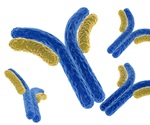
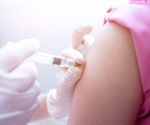

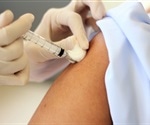
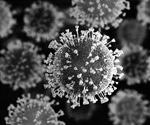

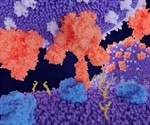
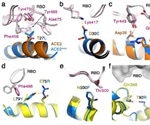
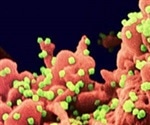
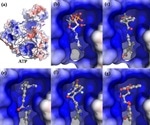
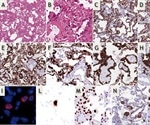
_1aabe3592d45416ca1ef5762898c72b6-150x125.jpg)

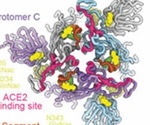
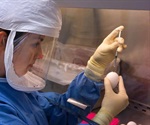


_6b4d356249e74284a7e317b4bf35fb30-150x125.jpg)
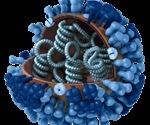

































No hay comentarios:
Publicar un comentario